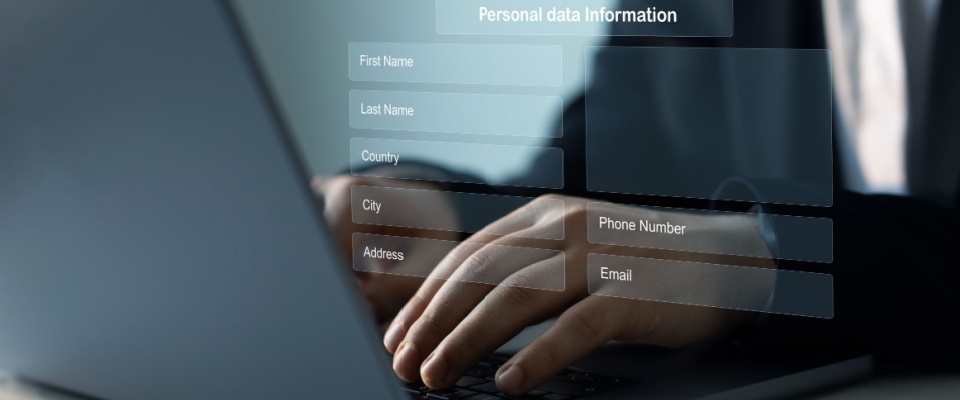What is an online rental application? Everything renters should know
Share this article:
Renting an apartment today is easier than ever, thanks to technology. Gone are the days when you had to fill out long paper forms and deliver them in person. Now, most landlords and property managers use online rental applications, which let you apply for a rental from anywhere with just a few clicks.
But what exactly is an online rental application, and what should you know before submitting one? This guide breaks down what the process looks like, what information you’ll need, and how to make your application stand out.
What is an online rental application?
An online rental application is a digital form that renters fill out to apply for a property. It collects the same details as a traditional paper form — things like your name, employment history, and rental background — but it’s completed and submitted online.
Once you apply, the landlord or property manager reviews your information and may run background or credit checks before deciding whether to approve you. Since everything happens online, the process is much faster and more convenient for both sides.
Online rental applications are now standard across the U.S. rental market, whether you’re renting a small studio apartment or a family-sized home.
Why online rental applications matter
For renters, the main benefit of online rental applications is convenience. You can apply anytime, anywhere. There’s no need to schedule an in-person meeting just to hand over papers.
They also save time. Because everything is submitted electronically, landlords can review your application right away. That can be a big advantage in competitive rental markets where good apartments go fast.
Most platforms also ensure that you complete all required fields before submitting, which means fewer delays due to missing information. And if you’re applying to multiple properties, online systems let you reuse or upload documents easily instead of redoing everything from scratch.
For landlords, digital applications simplify screening, reduce paper clutter, and make it easier to compare applicants quickly. In short, they help everyone move through the rental process more efficiently.
What information you’ll need
When you start filling out an online rental application, be ready to share basic personal and financial information. Having everything on hand will make the process smoother and faster.
Here’s what most landlords will ask for:
- Personal details – Full legal name, date of birth, contact information, and sometimes your Social Security number for screening.
- Employment and income – Your current employer, position, length of employment, and monthly or annual income. You may need to upload recent pay stubs or other proof of income.
- Rental history – Addresses of current and previous residences, landlord contact details, how long you lived there, and your reason for moving.
- References – Professional or personal contacts who can vouch for your reliability.
- Background check consent – Most online rental applications require your permission to run a credit and background check.
Providing complete, accurate information helps you make a strong impression and reduces the chance of delays or rejections.
Documents you might need to upload
Online rental applications typically require you to upload supporting documents, helping verify your identity and financial stability. The most common ones include:
- A government-issued photo ID (driver’s license or passport)
- Recent pay stubs or an employment letter
- Bank statements showing steady income
- Tax returns if you’re self-employed
- Optional: reference letters from previous landlords or employers
Make sure your documents are clear, readable, and saved in standard formats like PDF or JPEG. Double-check that your uploads match the landlord’s requirements before submitting.
Application fees and processing
Many landlords charge a small application fee to cover the cost of credit and background checks. The amount varies depending on the property and local laws.
Before you submit your online rental application, take a minute to review:
- The exact application fee amount
- Whether it’s refundable
- Accepted payment methods (such as debit card or electronic transfer
Always check all the application fees you need to cover and only apply through verified listings or trusted rental platforms. Unfortunately, rental scams do exist, so it’s best to double-check the website or property management company before providing personal or payment information.
How to create a strong online rental application
Submitting a thoughtful, complete online rental application can help you stand out from other applicants, especially when the market is competitive. Here are a few simple ways to strengthen your chances:
- Apply early, ideally right after you find an apartment you love. Popular rentals can fill quickly, and early applicants often get priority.
- Be honest about your income and employment history since landlords will verify this information.
- Adding a short, polite note to the landlord explaining why you’re interested in the property can also make a positive impression.
- Gather your documents before you start applying. Having everything ready — ID, pay stubs, references — means you can submit faster, which can give you an edge.
- Review your application for typos or missing information before hitting submit. A clean, error-free application looks professional and helps you get approved faster.
Is it safe to apply online for an apartment?
Security is an understandable concern when submitting personal and financial details online. Reputable rental websites and property management systems use encrypted technology to protect your data, but you should still take precautions.
Only apply through trusted platforms or verified property websites. Avoid sharing sensitive details like your Social Security number over email or text. Look for “https://” in the website address — the “s” stands for “secure.” Following these steps can help keep your information safe throughout the process.
An online rental application is one of the best modern tools for renters. It saves time, reduces stress, and makes it easier to find your next home — all without leaving your couch.
By knowing what information to prepare and how to protect your data, you’ll move through the application process with confidence. Whether you’re applying for your first apartment or relocating to a new city, understanding how online rental applications work can make your rental experience faster, safer, and a lot smoother.
FAQs: Online rental applications in 2025
Q: Is an online rental application legally binding?
A: No, submitting an online rental application doesn’t mean you’re legally bound to rent the apartment. It’s simply a request for the landlord to review your eligibility. You only enter a binding agreement after signing the lease.
Q: How long does it take to get approved?
A: Approval times vary. Some landlords respond within a day or two, while others may take up to a week. Having complete, accurate information can help speed things up.
Q: Can I apply for multiple apartments at once?
A: Yes. You can submit several online rental applications if you’re exploring different options. Just be mindful of application fees — they can add up.
Q: Do all landlords use online rental applications?
A: Not all, but most do. Larger property management companies almost always use online systems, while some smaller landlords may still prefer paper applications.
Q: What happens after I’m approved?
A: Once you’re approved, you’ll typically receive a lease agreement to review and sign electronically. Then, you may be asked to pay a security deposit or the first month’s rent to secure the unit.
Share this article:
Alexandra Both is a senior real estate writer and research analyst with RentCafe. She brings over almost 10 years of real estate writing experience, having served as a senior editor at Commercial Property Executive and Multi-Housing News. A seasoned journalist, Alexandra has worked across print, online, and broadcast media. Her work has been featured in a variety of prominent outlets, including The New York Times, The Guardian, USA Today, and Architectural Digest. She holds a B.A. in Journalism and an M.A. in Community Development.
The Ready Renter has your back
Tips, news, and research curated for renters, straight to your inbox.




Related posts
Subscribe to
The Ready Renter newsletter










